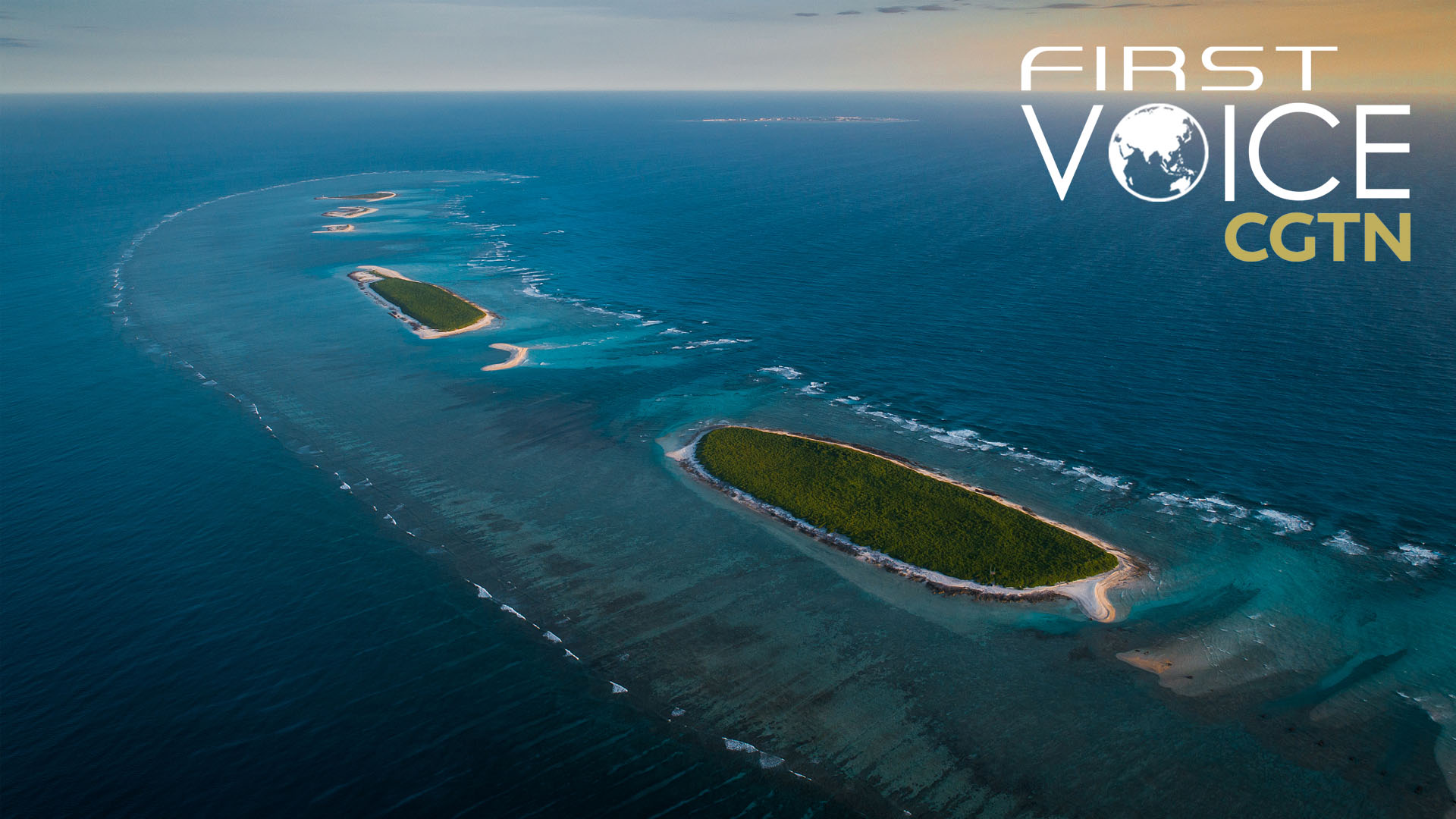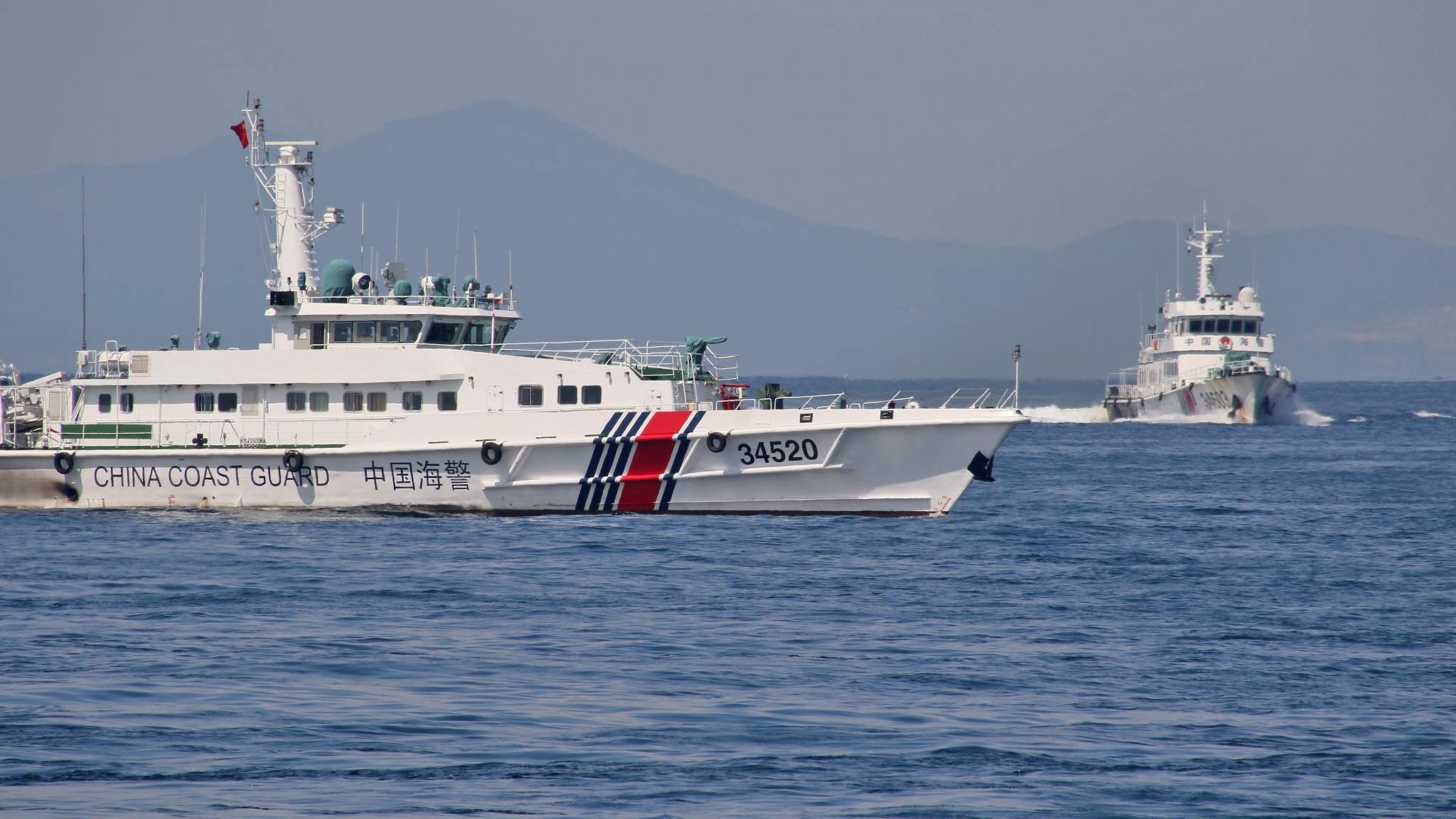
Editor's note: CGTN's First Voice provides instant commentary on breaking stories. The daily column clarifies emerging issues and better defines the news agenda, offering a Chinese perspective on the latest global events.
The Taiwan authority and the United Statessigned their first agreementunder the Biden administration, establishinga Coast Guard Working Group (CGWC)in the South China Seato tackle the Coast Guard Law (CGL) that the Chinese central government passed in January.
When Taiwan's so-called representative Hsiao Bi-khim signed theagreement in Washington, the statedaim of the new CGWC was to forgestronger partnerships among American "allies"to ensure a free and open Asia Pacific. If the objective of theCGWGisto pressurize the Chinese mainland toward exercising restraintin the South China Sea, thisis more about geopolitics than merit and will only actto the detriment of maritime security.
First and foremost is the CGL itself.If the CGL is erroneously perceived as warranting an increased military presence in the region, then the probability of miscalculations increases.
China has been long undergoing a process to institutionalize its maritime laws through a solid legal foundation,which resulted in the passage of the law in January.The articles of thelaw challenge the widely held notion that China willattack other sovereign states. For instance, Article 48underlines preconditions prior to itsapplicationthat must be satisfied including counter terrorismthreats,dealing withviolent incidents at seaand deterring attacks on China's vessels.
Proportionality is also akey aspect of the lawwhich has been missed by Taiwan and the United States,whereCGL personnel would have to assess the level of forcebeing employedto avoid collateral damage.
This law is not an offensive doctrine, strategy orpolicy which takes aim atother sovereign states as is construed.
WhenSu Tseng-chang, head of Taiwan's administrative authority, claimed on Friday that Beijing's new lawshocked the regionwith maritime security being imperiled, it was clear that an alarmist narrative was being peddled.

Chinese Coast Guard boats patrol in east China's Bohai Bay, September 13, 2020. /CFP
Tomake it incumbent uponstates which shared "common values"tostrive toward peaceis eerily similar to how analysts suchas Alex Vuving, professor at the Daniel K Inouye Asia-Pacific Center for Security Studies in Hawaii, had claimedthat countries such as Malaysia, Myanmar and Vietnam would beat the receiving end ofChinese "aggression" if the law is implemented.
Such statements discardactual mooting points such asde-escalation zonesin the South China Sea, exercisingmutual restraint orpromotingconfidence building measures aimed at diffusing tensions.This includes turning a blind eyeonthe irrefutable fact thatChina's Coast Guard Law is not unique in Asia,given thatJapan had revised its law of the kind back in 2001.
Based on facts alone, it is clear that contesting the CGL in Chinathrough maritime cooperation with the Taiwan authorityisless about maritime security and more about securing geopolitical advantages over the Chinese mainland.
Speakingto White House reporters on Friday,U.S. President Joe Biden repeatedly stressed on how the United States will not allow China to become the most powerful countryin the world. These comments are a reflection of greatpower competitionchampioned by the United Stateswheredivisionsbelittle the significance of cooperative frameworks.
Provocative behavior on part of the United Stateswith the deployment of military vesselstaking aim atChinais missing from theChina expansionistequationcited by theBiden administration with the Taiwan case used conveniently to strengthen American presencein the region.
Delisting of Chinese companies,American bans on cotton imports from Xinjiangand leveraging alliances all fall under the purview ofthis strategy of containment,with the CGL being used to justify its own acts of aggression.
Academics such asEduardo Araral,associate professor at the National University of Singapore's public policy school, summed up China's strategy perfectly. The PLA's doctrine is not about aggression or ambiguity but securing options in case of threats to territorial sovereignty.
Asthe Taiwan authority cites the mainland's military flights over the Taiwan Straits as a threatto maritime security,the truth is thatthe CGL is being used as an excuse to encircle the Chinese mainlandonce againand that toowithout merit.
(If you want to contribute and have specific expertise, please contact us at [email protected].)
 简体中文
简体中文

